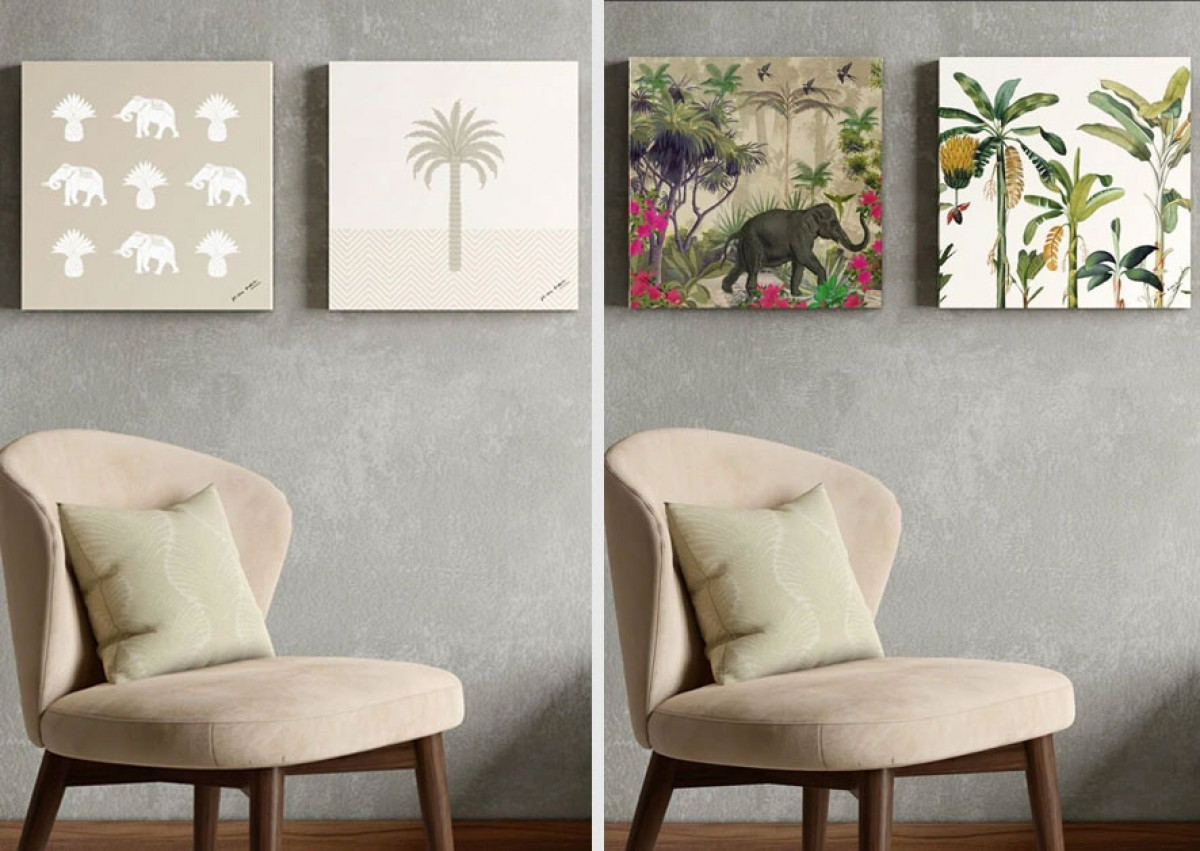
India’s cultural diversity is unparalleled, with each region offering its unique form of art and craftsmanship. Traditional Indian art encompasses a variety of styles, from the intricate paintings of Rajasthan to the vibrant textiles of Gujarat and traditional paintings of Tanjore to the detailed carvings of South India. Infusing these ideas enriches your living space. By incorporating these traditions into your home, you can pay homage to India’s rich cultural heritage.
We’ll help you explore various ways to blend traditional Indian art and cultural elements into modern homes with our wall decor art and wall paintings to create an elegant space.
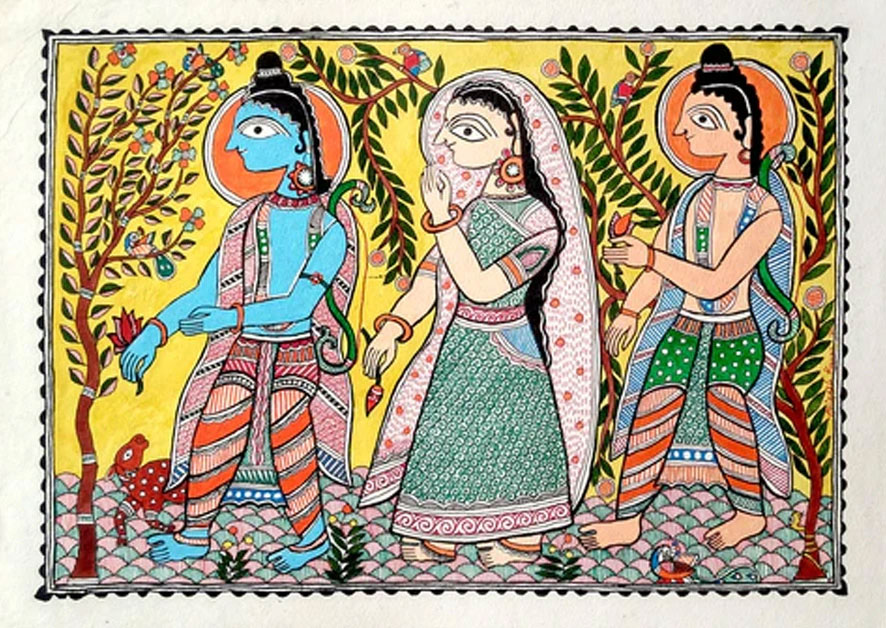
Madhubani art originated in Bihar, India is also known as Mithila art. It is popular for its vibrant colours and intricate patterns with folk painting style. It is traditionally painted by women on floors and walls which depicts mythological themes, nature, and everyday life. It can be characterized by eye-catching geometric patterns and bold lines. Artists traditionally use natural dyes and pigments, applying with tools like twigs, brushes and even fingers. Madhubani art not only adorns walls and floors but also canvases, textiles, and home decor items making it a cherished form of art that continues to captivate and inspire.
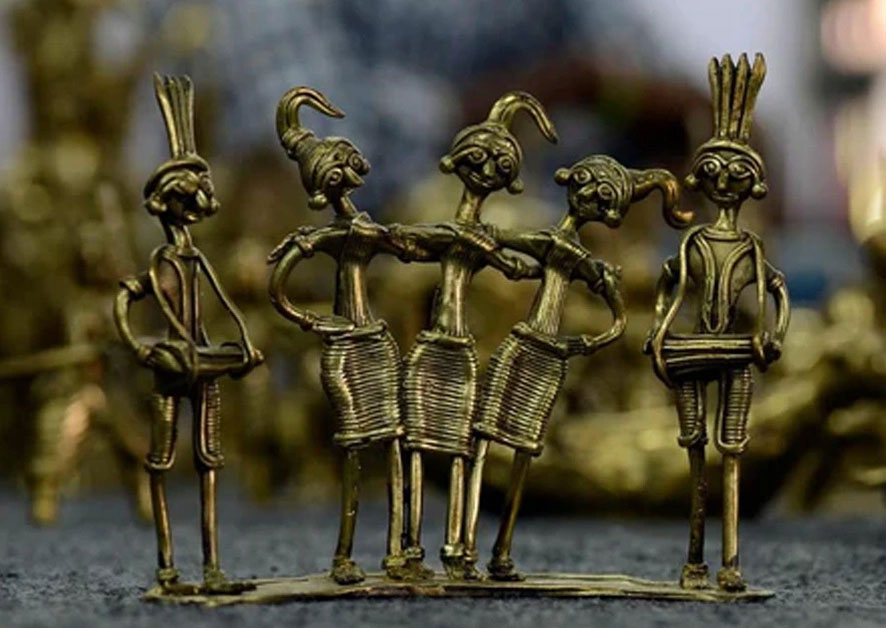
Dhokra art is an ancient form of metal casting that has been practised in India for over 4000 years. It originated from the states of Odisha West Bengal and Jharkhand by tribal artisans. This art involves a technique of lost wax casting to create stunning brass and bronze figurines, jewellery and artefacts. Each piece reflects the uniqueness of the skills and creativity of artisans. The process begins with crafting a clay model, which is then covered with wax threads to form intricate patterns. Another layer of clay is applied to create a mould, which, once heated, allows the wax to melt away, leaving a hollow form. Molten metal is then poured into the mould to produce the final piece. These decor pieces infuse rustic charm and vintage heritage.
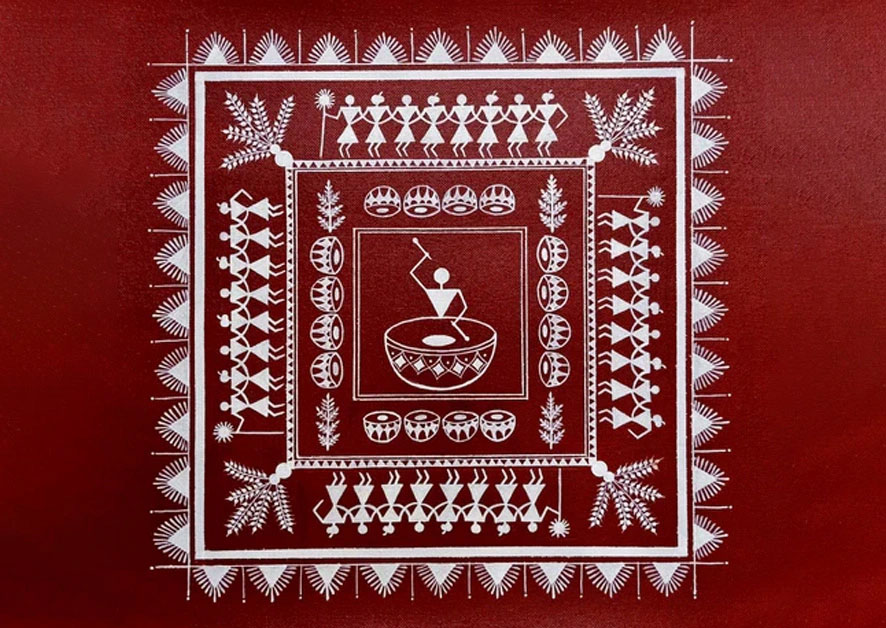
Warli art is a captivating form of tribal painting that hails from the Warli community of Maharashtra. This tradition of art is renowned for its simple yet profound visual language. It is created using basic shapes like circles, triangles, and lines with rice paste or white pigment on mud walls. It serves as a testament to their deep connection with nature and community. Integrating Warli art into your home adds a touch of Indian traditional elegance to your space.
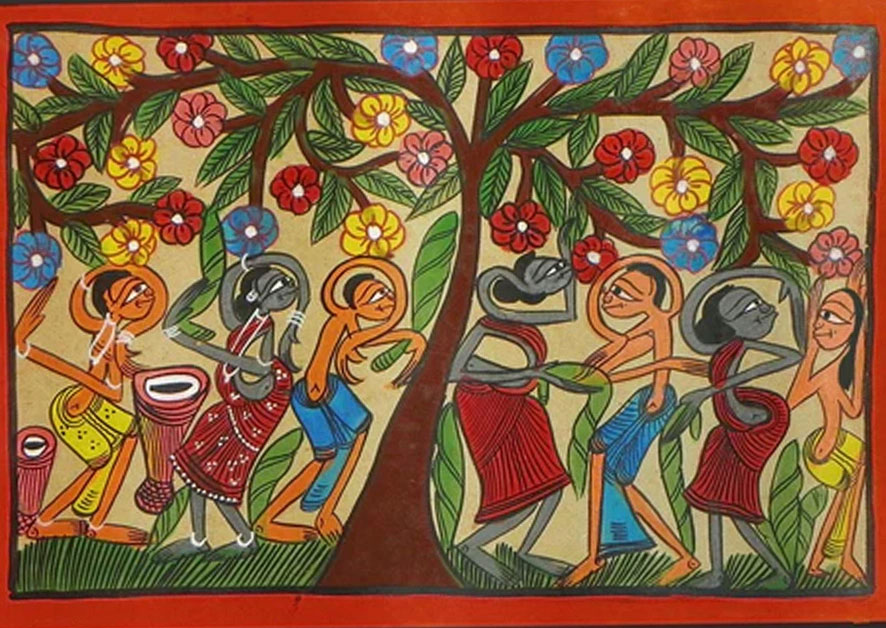
Tribal or Santhal painting is an exquisite form of tribal art, that originates from the Santhal tribes of eastern India. This vibrant art form is characterized by its dynamic use of colour and intricate detailing, often depicting the daily lives, festivities, and mythological narratives of the Santhal community. This form of painting inspired the famous modern artist Jamini Roy’s work. These paintings refer to their close relationship with nature and their communal way of life.
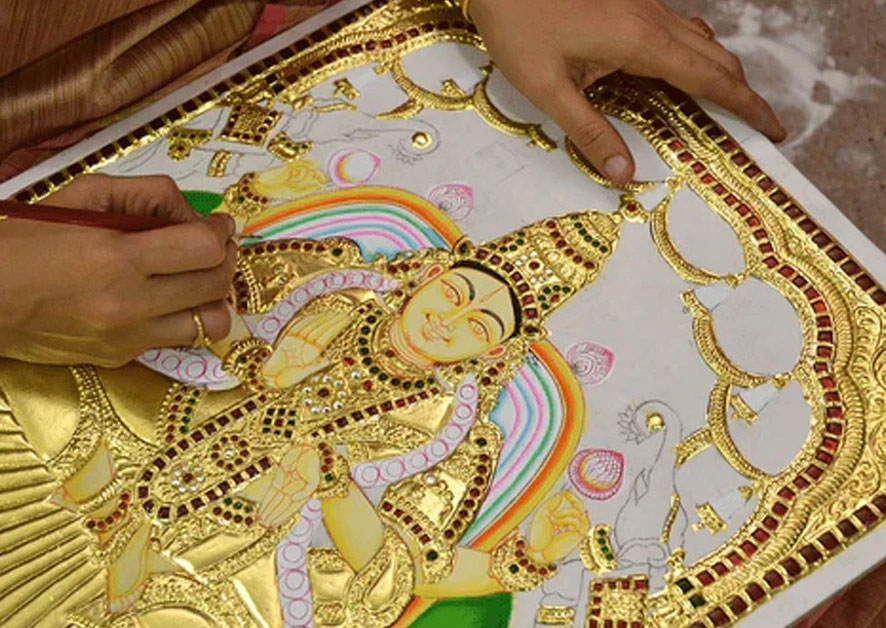
It is a known fact that Tanjore painting is Indian Traditional art known as classical South Indian art originated in Tamil Nadu from the town of Thanjavur. Renowned for its rich colours, surface richness, and compact composition, Tanjore’s painting is celebrated for its depictions of Hindu gods and goddesses, saints, and mythological scenes. These paintings are characterized by their ornate and intricate detailing with the use of gold foil to highlight certain elements, giving the artwork a three-dimensional effect and a radiant glow.
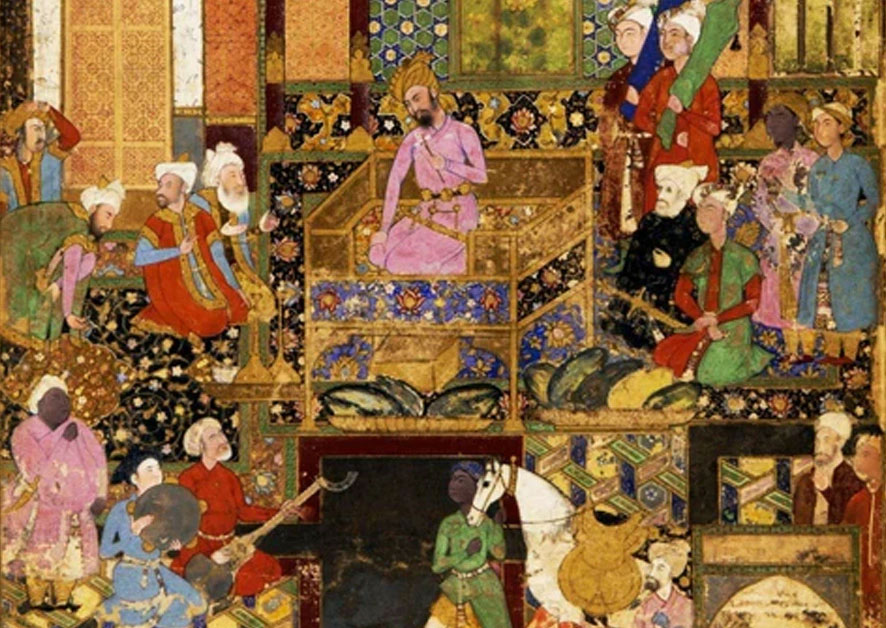
Mughal Painting in the word says it, originated during the Mughal empires in India in the 16th to 18th century. It is characterised by intricate detailing, vibrant colours, and a fusion of Indian and Persian styles. Often depicting royal courts, flora, and fauna, Mughal paintings exude elegance and refinement. The paintings also feature lush landscapes, rich textiles, and architectural marvels, reflecting the opulence and sophistication of the Mughal court.
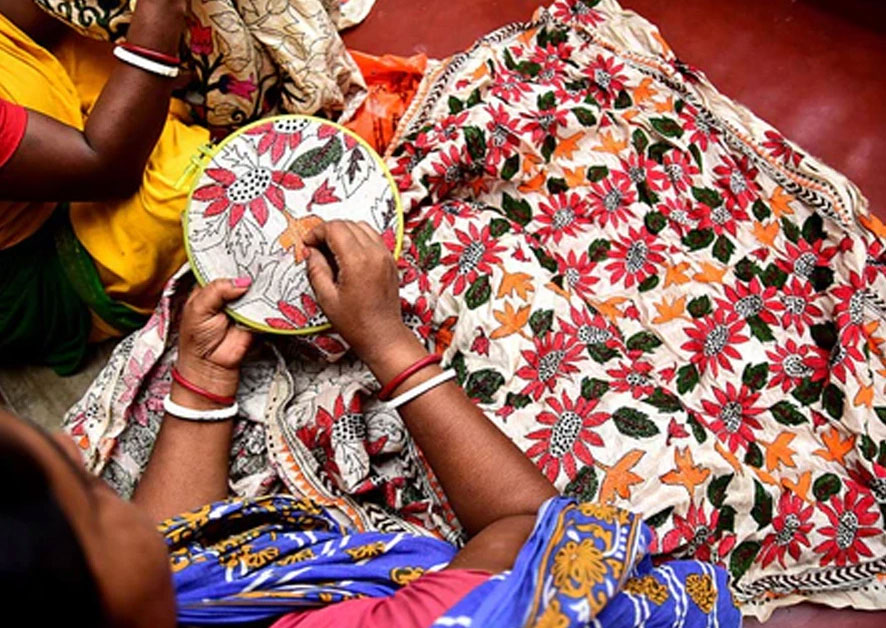
Kantha Stitch quilts originated from the Bengal region, are handcrafted from recycled saris and it is adorned with intricate running stitches. The outcome is a beautifully textured quilt, adorned with vibrant embroidered patterns depicting animals, flowers and geometric designs, often narrating stories or conveying cultural themes. Infusing Kantha Stitch Quilts into your home decor adds warmth and texture to your space infusing rich cultural heritage and sustainable beauty of traditional Indian craftmanship.
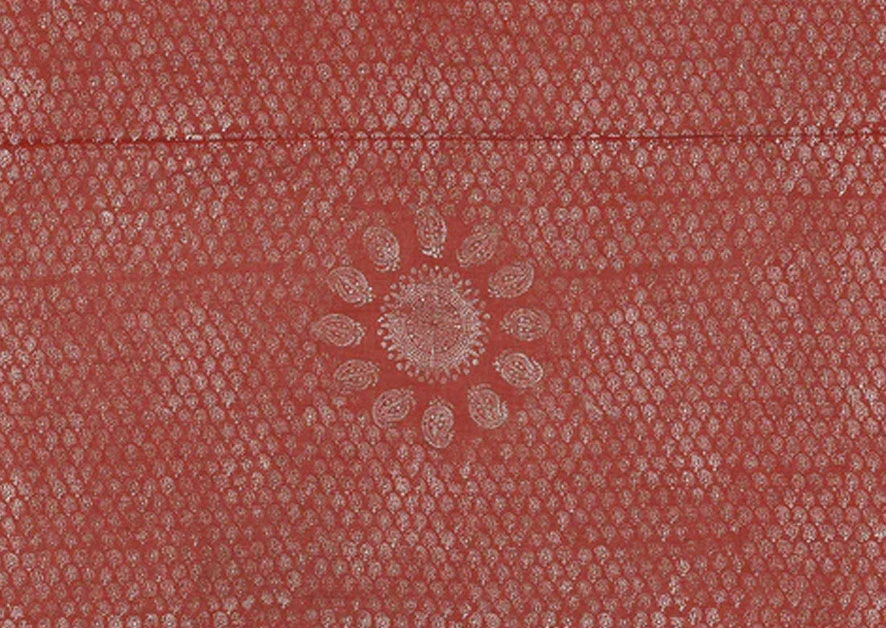
Varak print cushions are an awesome example of Indian traditional art. It showcases the rich heritage and craftsmanship of textile printing. Varak, or “foil” printing, involves the meticulous application of thin metal sheets, typically gold or silver, onto fabric to create intricate, shimmering designs. Originating from Rajasthan, Varak print cushions add a luxurious touch to home decor. This technique which dates back centuries infuses the cushion with a touch of opulence and elegance for traditional art forms of India.
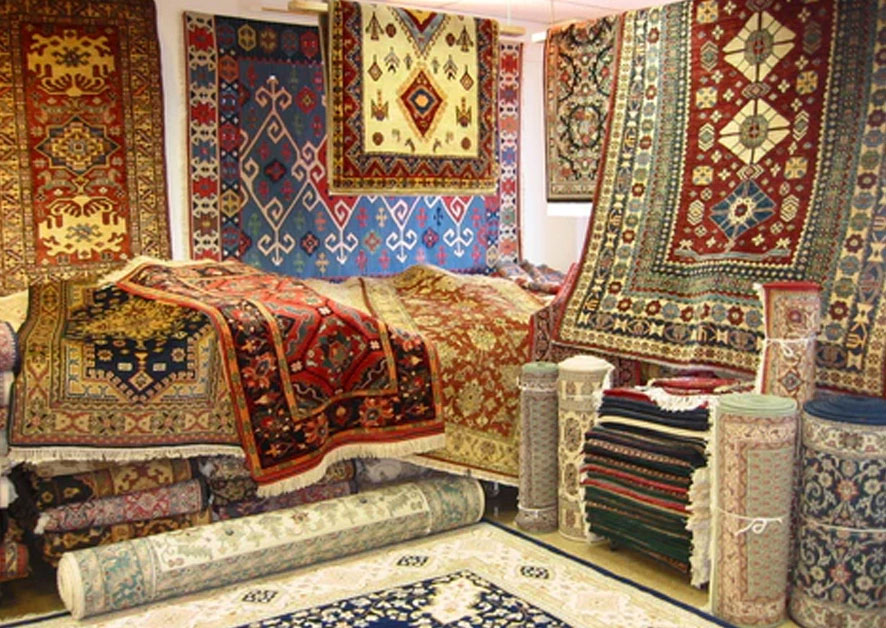
Kashmiri carpets are known worldwide for their exquisite craftsmanship and intricate designs, representing Indian traditional art. It has been originated from the valleys of Kashmir. These hand-crafted carpets are made using the finest wool, silk, or a blend of both, and they often feature elaborate floral patterns, paisleys, and detailed geometric motifs inspired by Persian and Central Asian influences. Each handcrafted piece reflects the centuries of traditions, making them timeless treasures, which helps in the elevation of any space for traditional Indian home decor.
Incorporating traditional Indian art and cultural elements into your home decor is a beautiful way to celebrate and preserve India’s rich heritage and traditions. Each piece of art tells a story, adds character, and brings warmth to modern spaces. By thoughtfully selecting and organizing these elements, one can create a home that is modern and stylish with a contemporary touch that is deeply rooted towards cultures and traditions with its timeless beauty and elegance.
You can maintain and care for your traditional Indian art by not exposing it to direct sunlight and moisture. Undust regularly with a soft damp cloth to maintain the shine and allure of the decors, for textiles, one can follow the specific cleaning instructions. For valuable pieces, consider professional cleaning and restoration services for long-term maintenance.
Yes, Traditional Indian art can be incorporated into any interior design or home decor, whether your home is contemporary or rustic. Traditional Indian pieces can add cultural richness and unique style to complement any home decor.